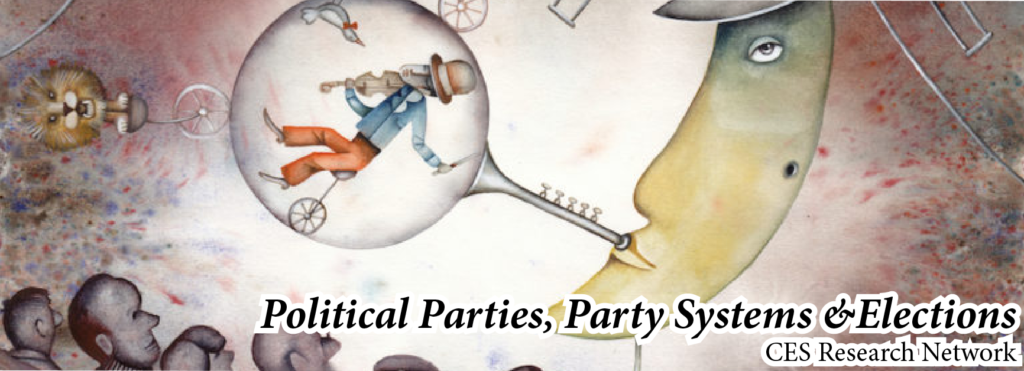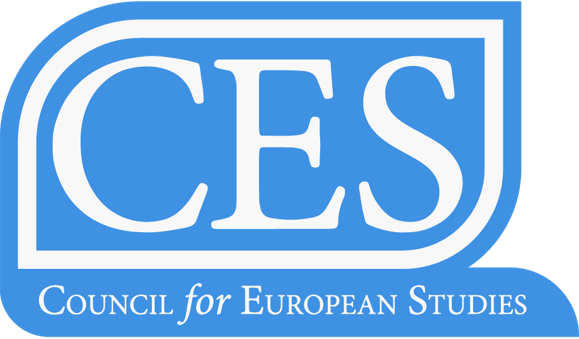
To join this network, click here. Note: All Memberships in CES Research Networks are open for CES individual members in good standing.
This Research Network has a simple purpose, to improve our understanding of political parties, party systems and elections by engaging scholars in sustained conversations that cut across geographical and disciplinary boundaries. We will use a combination of electronic networking tools and more traditional conference meetings to bring scholars together and assist them in working together to gather and disseminate better data and collaborate on joint projects.
What will we work on? On the basis of a survey completed by nearly 100 of our founding members, the research network will focus on four main areas of party-related research:
- Understanding How Parties Work
- Understanding How Party Systems Change
- Understanding How Voters Choose
- Understanding the Contexts in which Parties and Party Systems Operate
How will we work together? Our goal with this proposal is to create a practical filter mechanism for scholars of parties and elections. Within the bounds of time and expertise, we seek to create a place where scholars turn first for what they need to know about scholarship on parties and elections and about the scholars who do the work. We seek to provide a consistent flow of information that scholars need without creating new demands on their attention to offer a convenient and useful mechanisms for users to generate content that will be of use to others.
- Linking scholars. We began our efforts to link scholars with the “Why We Study Parties” Facebook Group, which combines up-to-date news from in-country observers and participants with commentary and humor. We will also be making information from this group available to members who prefer not to use Facebook. We are building a detailed membership directory to allow members to find just the right combination of expertise that might help to answer particular questions.
- Linking scholarship. Developing personal networks is easiest when there are common projects around which to build, and we publicize joint projects, provide a space for communication among researchers engaged in the large-scale data gathering efforts, help find partners and advisors for grant proposals and scholars for expert surveys.
- Linking existing groups and their members. Although scholars of political parties have formed a variety of groups at the national and regional level, these remain largely disconnected. The Research Network will create links between the party- and election-related efforts of regional and domestic political science associations by posting their updates, newsletters, and calls for papers.
Co-Chairs:
- Daniela Piccio, University of Torino, danielaromee.piccio@unito.it
- Guillermo Cordero, Universidad Autónoma de Madrid, guillermo.cordero@uam.es
- Sorina Soare, University of Florence, sorinacristina.soare@unifi.it
Network Announcements
Considering the limited number of papers received for evaluation, the 2023 Peter Mair Award has been postponed to the next CES Conference in Lyon (July 3-5, 2024).
2022 Peter Mair Award
The Jury made of Jose Ramon Montero (the Autonomous University of Madrid), Andrea Pirro (Scuola Normale Superiore, Florence), Guillermo Cordero (the Autonomous University of Madrid ), Daniela Piccio (University of Turin), and Sorina Soare (University of Florence) is pleased to announce the winner of the 2022 Peter Mair Award.
Max Kiefel has received the award for the paper “Leftism Defeated: Party Organisation and Social Democratic Erosion”.
The paper wonders about the reasons for the electoral and representative deterioration of Social Democratic parties over the last decade and builds on a wide body of research dealing with the decline of social democratic parties. The jury acknowledged that Kiefel’s contribution is well balanced in theoretical and empirical terms, advancing interesting perspectives and making use of novel primary data. The author convincingly employs logical Bayesianism to weigh and assess a wide repertoire of qualitative sources, including 25 interviews. Kielfel proposes an “organizational power theory” fundamentally based on the premise that party change is contingent on elite replacement. His findings reinforce the need to pay more attention to developments within parties to understand their success and responsiveness.
The jury acknowledges the intellectual contributions to party politics of women and scholars from minority groups. In order to tackle the under-representation of female and minority scholars in publications, the jury invites women and scholars from minority groups to join and play an active role in the Research Network community.
Our research network awarded the “Peter Mair Prize” to the best paper on Political Parties, Party Systems and Elections presented at the 28th Int’l Conference of Europeanists in Lisbon. The winner has been awarded a $500 prize.
The jury of the prize is composed of:
- José Ramón Montero (Universidad Autónoma de Madrid)
- Andrea Pirro (Scuola Normale Superiore)
- Guillermo Cordero (Universidad Autónoma de Madrid)
- Daniela Romee Piccio (University of Turin)
- Sorina Soare (University of Florence)
Considering the limited number of papers received for evaluation, the 2023 Peter Mair Award has been postponed to the next CES Conference in Lyon (July 3-5, 2024).


